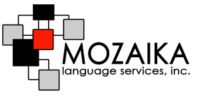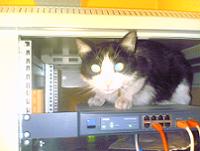Do you use termbases more or less than 5 years ago? Thread poster: Heinrich Pesch
|
|---|
Heinrich Pesch 
Finland
Local time: 11:20
Member (2003)
Finnish to German
+ ...
I would like to hear if you think the importance of termbases or glossaries or what you call them is on the decline or not? Personally I haven't had any request for use of termbases from customers since years. Currently I don't have Multiterm even installed, and with Wordfast I haven't touched my glossaries either. What is your impression?
| | | | Mark
Local time: 10:20
Italian to English
| My impression… | Nov 19, 2013 |
…is that clients and agencies aren't prepared to put in the work required to make them a valid resource.
| | | | Samuel Murray 
Netherlands
Local time: 10:20
Member (2006)
English to Afrikaans
+ ...
Heinrich Pesch wrote:
Personally I haven't had any request for use of termbases from customers since years.
I often get them, but they're usually in a format that I have to convert myself (e.g. an Excel file with hundreds of columns and rows and dozens of worksheets). Sometimes the glossary is simpler (e.g. a plain text file with no more than 100 terms) but still mandatory. Other clients don't send the glossary but still expect me to adhere to it, e.g. in an online system or in a downloadable format.
Of course, I also use them myself, to ensure consistency within my translations and as a typing aid.
| | | | | Use has not declined in my specialty | Nov 19, 2013 |
It would probably be useful to mention our specialties in answering this question. I translate corporate communications (financial, business, marketing, legal).
On most larger projects where I am part of a translation team, there are glossaries and style guides I have to follow. On most smaller projects, the client usually has either a glossary or style guide, or both, for particular end customers. Direct clients sometimes do and sometimes don't. I keep my own for certain clients/s... See more It would probably be useful to mention our specialties in answering this question. I translate corporate communications (financial, business, marketing, legal).
On most larger projects where I am part of a translation team, there are glossaries and style guides I have to follow. On most smaller projects, the client usually has either a glossary or style guide, or both, for particular end customers. Direct clients sometimes do and sometimes don't. I keep my own for certain clients/subjects as well.
In the past couple of years, some clients have tended to forgo creating a separate glossary and simply send along a TM to work from/use as a source of terms and phrasing.
The arguments against CAT/TEnT tools (whether we're talking about termbases or TMs) I see here are simply moot in the specialty I work in. There is no other way to translate the volumes we are required to do with the speed and consistency expected. For example, one of my clients provides a term list with multiple *thousands* of words and phrases in it. No way I can remain consistent without loading that into my CAT tool.
In other words, I have not noticed any change! ▲ Collapse
| | |
|
|
|
| Regular clients | Nov 19, 2013 |
I use terminology because it's in my own interest, not because it's requested by clients. When I translate for regular clients (companies or organizations from which I get something every month, or at least several times a year), it makes plain sense to maintain and use their own specialized terminology for them. In addition to that, you can also use general-purpose terminology as a typing aid, as suggested by Samuel.
When I get a new client, I always create terminology for them, ev... See more I use terminology because it's in my own interest, not because it's requested by clients. When I translate for regular clients (companies or organizations from which I get something every month, or at least several times a year), it makes plain sense to maintain and use their own specialized terminology for them. In addition to that, you can also use general-purpose terminology as a typing aid, as suggested by Samuel.
When I get a new client, I always create terminology for them, even if it's only half-a-dozen entries. You never know if it's going to be a one-time only client or if it will turn into a regular one. ▲ Collapse
| | | |
Mark Dobson wrote:
…is that clients and agencies aren't prepared to put in the work required to make them a valid resource.
Indeed. Apart from the occasional glossary, very few customers have the time or the will to prepare these resources. I think that if we want to make a good use of our own research, it is our duty to keep and maintain well-documented, customer-independent internal termbases.
| | | | Phil Hand 
China
Local time: 16:20
Chinese to English
| My own, not clients' | Nov 20, 2013 |
Yep, I'm the same. Very rarely get glossaries from clients, and when I do they're not in termbase format. If they're big and useful, I import them. But I maintain my own termbases, despite the fact that SDL seem determined to make it hard for us with their Java issues!
For recurring clients, it's incredibly helpful. I have one direct client in the pharmaceutical industry, and maintaining a list of the names and trademarks of drugs is helps a lot.
While I'm on the subject, a ma... See more Yep, I'm the same. Very rarely get glossaries from clients, and when I do they're not in termbase format. If they're big and useful, I import them. But I maintain my own termbases, despite the fact that SDL seem determined to make it hard for us with their Java issues!
For recurring clients, it's incredibly helpful. I have one direct client in the pharmaceutical industry, and maintaining a list of the names and trademarks of drugs is helps a lot.
While I'm on the subject, a major LSP whose software I also use doesn't seem to be able to create glossaries in their own format, and has given me Word/Excel glossaries in the past. That's just weird. ▲ Collapse
| | | |
that Samuel and I seem to be in the minority. Again, it would be interesting to know your subject areas to see if there are certain types of clients who do provide glossaries. We all seem to make them for ourselves, although as I mentioned, using a TM is an easier way to do it now.
| | |
|
|
|
| Scale factor | Nov 20, 2013 |
Daina Jauntirans wrote:
that Samuel and I seem to be in the minority. Again, it would be interesting to know your subject areas to see if there are certain types of clients who do provide glossaries. We all seem to make them for ourselves, although as I mentioned, using a TM is an easier way to do it now.
Generally. big corporate customers maintain their glossaries, especially for localization jobs.
Microsoft, Autodesk etc.
The same with some multinational corporations and international institutions.
Basically, the small clients don't manage their terminology 'cause it takes a lot of time, resources etc. with no "visible" effects, especially if their translations are occasional.
Of course, it may be a lot of exceptions.
Cheers
GG
| | | | Samuel Murray 
Netherlands
Local time: 10:20
Member (2006)
English to Afrikaans
+ ...
| More comments | Nov 20, 2013 |
Daina Jauntirans wrote:
In the past couple of years, some clients have tended to forgo creating a separate glossary and simply send along a TM to work from/use as a source of terms and phrasing.
A few of my clients do that as well, and it is cumbersome, because since TMs typically offer suggestions whereas glossaries are prescriptive, it is difficult to know when something must be taken as a mere suggestion or as something that is required.
Dominique Pivard wrote:
When I get a new client, I always create terminology for them, even if it's only half-a-dozen entries. You never know if it's going to be a one-time only client or if it will turn into a regular one.
I do the same.
[Edited at 2013-11-20 09:07 GMT]
| | | | neilmac
Spain
Local time: 10:20
Spanish to English
+ ...
| Use a what now? | Nov 20, 2013 |
Never used one - in fact I'd have difficulty defining what it is, other than "a (data)base with terms in it". I don't really use or compìle glossaries either, athough I probably should.
I use WF Classic but "with Wordfast I haven't touched my glossaries either". I started compiling a couple of client-specific glossaries, but never really got round to finding out how to insert the glossary items into the target segments, so I stopped using it. I do find WF is a bit thin on specifi... See more Never used one - in fact I'd have difficulty defining what it is, other than "a (data)base with terms in it". I don't really use or compìle glossaries either, athough I probably should.
I use WF Classic but "with Wordfast I haven't touched my glossaries either". I started compiling a couple of client-specific glossaries, but never really got round to finding out how to insert the glossary items into the target segments, so I stopped using it. I do find WF is a bit thin on specific instructions, but perhaps that is because of my slapdash attitude. I tend to want to ask "how do you do X" and get a quick answer rather than read through a list of instructions.
[Edited at 2013-11-20 09:19 GMT] ▲ Collapse
| | | | Michael Beijer 
United Kingdom
Local time: 09:20
Member (2009)
Dutch to English
+ ...
| Terminology is everything. | Nov 20, 2013 |
Heinrich Pesch wrote:
I would like to hear if you think the importance of termbases or glossaries or what you call them is on the decline or not? Personally I haven't had any request for use of termbases from customers since years. Currently I don't have Multiterm even installed, and with Wordfast I haven't touched my glossaries either. What is your impression?
Hi Heinrich,
Most of my work consists of translation. However, around 20% of it is creating glossaries for large corporate clients. These are generally monolingual, English or Dutch lists of terms that are used in large localisation projects.
What this means:
– my client (usually a large LSP) has a large, multilingual translation/localisation project
– they send me, say, 300,000 words of corporate material (often in many different file formats)
– I use automatic and manual techniques to extract the terminology
– I create a monolingual (or sometimes bilingual) glossary in Excel (often with file names, context, POS, etc.)
– my glossary is then sent to the various different translators in charge of a particular language, who translate my original (usually English) glossary into their languages
– a final, multilingual, glossary is created, which is used in the multilingual translation/localisation project mentioned above
Apart from this, in my daily translation work, I am only very rarely sent a glossary, usually in technical or IT-related projects.
However, I keep track of terminology for my own purposes in several ways and places: in memoQ (internal) and CafeTran glossaries (tab-delimited UTF-8 text files and TMXs), in a very large collection of glossaries that I found online, on my website (http://wordbook.nl/wordbook.html ) and on my computer (in tab-delimited UTF-8 .txt + .csv files), in my collection of reference books (yes, the ones made of paper), local (CD-ROM) dictionaries (Van Dale Dutch and Dutch-English, English dictionaries, etc.), and online subscriptions (Oxford Dictionaries Pro, Juridisch-Economisch Lexicon, Onroerend Goed Lexicon, Groot Woordenboek Industrie & Techniek, FELOnline). At any given moment I will usually also be experimenting (playing?) with a range of terminology, translation, text editing and database tools, such as SynchroTerm, tlTerm, tlDatabase + tlCorpus, TermX Pro, Lingo 4.0, AnyLexic, LF Aligner, Excel, EmEditor, Xbench, dtSearch, Okapi Olifant, Ron's Editor, SDL MultiTerm Extract, File Locator Pro, LibreOffice, Access, Archivarius 3000, etc. etc. etc.
My motto is: terminology is everything.
Michael
| | |
|
|
|
| More, because there is more in it | Nov 20, 2013 |
I have two or three termbases, but having lost one big one over an update, I tend to keep a ragbag for each language pair I work in.
Subject areas are very mixed, but I keep a lot of law (names of Danish Acts on this and that, and legal terms) and a certain amount of medical terminology in my database.
Plus all sorts of things like
- countries, (then Iceland is translated, not left as Island, which the spell checker does not catch...)
... See more I have two or three termbases, but having lost one big one over an update, I tend to keep a ragbag for each language pair I work in.
Subject areas are very mixed, but I keep a lot of law (names of Danish Acts on this and that, and legal terms) and a certain amount of medical terminology in my database.
Plus all sorts of things like
- countries, (then Iceland is translated, not left as Island, which the spell checker does not catch...)
- Client-specific terminology, anything from whether the big boss is called the CEO, President or Managing Director... and what they call their departments/ sections/ branches....
- The correct way of spelling products, and my regular typos!
I do keep systematic glossaries, and use them. I have one that I keep together with a client, because they run a German version in parallel.
I am constructing one list, which I still keep as a Word file, because that is how it started way back, and the notes need editing and the languages need to be sorted before I can convert it for Multiterm. (It fills a couple of hundred pages, and has definitions and notes for some entries.)
_____________________________________
The glossary function was my big grouch about Wordfast. It simply cannot compete with Multiterm when Multiterm works.
I can use the TM and concordance if I know I need to search for something, but let's be realistic - who searches those for everything when the client sends a TM?
The advantage of Multiterm is that is shows anything it finds, so you don't have to guess when you should be searching for something.
But I do it for my own sake, without much help from clients. ▲ Collapse
| | | | To report site rules violations or get help, contact a site moderator: You can also contact site staff by submitting a support request » Do you use termbases more or less than 5 years ago? | Trados Business Manager Lite | Create customer quotes and invoices from within Trados Studio
Trados Business Manager Lite helps to simplify and speed up some of the daily tasks, such as invoicing and reporting, associated with running your freelance translation business.
More info » |
| | TM-Town | Manage your TMs and Terms ... and boost your translation business
Are you ready for something fresh in the industry? TM-Town is a unique new site for you -- the freelance translator -- to store, manage and share translation memories (TMs) and glossaries...and potentially meet new clients on the basis of your prior work.
More info » |
|
| | | | X Sign in to your ProZ.com account... | | | | | |














